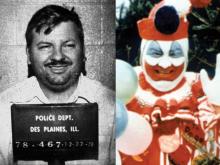May 27, 2013

Martin Luther
Martin Luther, the seminal figure of the Protestant Reformation, was a Nazi before there were Nazis. Before the rise of Adolph Hitler, Martin Luther was the worst anti-Semite to ever live.
by David Robb
Martin Luther is best known as the founder of Protestantism, to which today there are more than 800 million adherents. He launched The Reformation on Oct. 31, 1517, when he nailed his 95 Theses to the door of the Schlosskirche (Castle Church) in Wittenberg, Germany. It was his protest of church indulgences – payments that assured donors a place in Heaven – from which the Protestant faith derives its name. There is even a Christian denomination named after him – Lutheranism. There are now more than 65 million Lutherans worldwide.
Martin Luther King Jr., the great American civil rights leader and man of peace, was named after him, but Martin Luther was no man of peace; he was one of history’s worst anti-Semites. He was a Nazi before there were Nazis.
Before Hitler, he was the worst anti-Semite to ever live. His hatred of Jews was well-known – and widely followed – in Germany at the time, and helped sow the seeds of the Holocaust that would come four centuries after his death.
In his treatise Von den Jüden und iren Lügen (On Jews and Their Lies), published in Wittenberg in 1543, Luther had this to say about Jews:
- “First, to set fire to their synagogues or schools and to bury and cover with dirt whatever will not burn, so that no man will ever again see a stone or cinder of them.”
- “Second, I advise that their houses also be razed and destroyed.”
- “Third, I advise that all their prayer books and Talmudic writings, in which such idolatry, lies, cursing and blasphemy are taught, be taken from them.”
- Jews, he wrote, are “poisonous envenomed worms.”
- Jewish rabbis, he wrote, should be “forbidden to teach henceforth on pain of loss of life and limb.”
- Jews, he wrote, should be “tossed out” of Germany “by the seat of their pants…ejected forever from this country.”
- Calling for the murder of all Jews, he wrote: “We are at fault in not slaying them.”
- “Let the government deal with them in this respect, as I have suggested.”

Martin Luther’s Von den Jüden und iren Lügen (On Jews and Their Lies).
All of this could have just as easily come from Adolf Hitler’s manifesto, Mein Kampf, in which he referred to Martin Luther as a “truly great statesman.”
And when Hitler came to power, he took all of Luther’s advice.
“Luther, if he could be with us, would give us his blessing,” Hitler once said, telling a roaring crowd in 1934 that if Luther were there with them today, “he would rejoice” at the new German state.
Luther was widely cited by other top Nazis to as the forefather of their Nazi faith.
Bernhard Rust, Nazi Germany’s minister of education, wrote: “Since Martin Luther closed his eyes, no such son of our people has appeared again. It has been decided that we shall be the first to witness his reappearance.... I think the time is past when one may not say the names of Hitler and Luther in the same breath. They belong together; they are Schrot und Korn (being of the same school.)”
A leading Nazi churchman, Bishop Martin Sasse, justified the burning of Jewish shops and synagogues during the 1938 rampage known as Kristallnacht (Night of Broken Glass), writing: “On November 10, 1938, on Luther's birthday, the synagogues are burning in Germany,” and urged the German people to heed the words “of the greatest anti-Semite of his time – the warner of his people against the Jews.’”
Reich Culture Governor Hans Hinkel said this of Luther: “Through his acts and his spiritual attitude he began the fight which we still wage today; with Luther, the revolution of German blood and feeling against alien elements of the Volk was begun.”
Walter Buch, the Nazi Party’s supreme judge, father-in-law of Hitler’s henchman Martin Bormann and convicted SS-Obergruppenführer war criminal, made this observation: “Many people confess their amazement that Hitler preaches ideas which they have always held. From the Middle Ages we can look to the same example in Martin Luther. What stirred in the soul and spirit of the German people of that time, finally found expression in his person, in his words and deeds.”
Erich Koch, the Reich commissioner for Ukraine and the head of the Nazi Party in East Prussia, said, “Only we can enter into Luther’s spirit.”
Bavarian Minister of Education and Culture Hans Schemm said that Luther’s “engagement against the decomposing Jewish spirit is clearly evident not only from his writing against the Jews; his life too was idealistically, philosophically anti-Semitic. Now we Germans of today have the duty to recognize and acknowledge this.
Luther’s anti-Semetic writings were even used as a defense at the Nuremberg War Crimes Trials following the end of World War II.
Julius Streicher, the Nazi propagandist and publisher of the anti-Semitic Der Stürmer, told the Nuremberg tribunal that “Anti-Semitic publications have existed in Germany for centuries…Martin Luther would very probably sit in my place in the defendants’ dock today, if this book had been taken into consideration by the prosecution. In the book The Jews and Their Lies, Martin Luther writes that the Jews are a serpent’s brood and one should burn down their synagogues and destroy them.”
Streicher, who before the war was one of the top Nazi officials in Nuremberg, had done just what Luther instructed when, in 1938, he ordered the destruction of the Great Synagogue of Nuremberg.
After finding Streicher guilty of crimes against humanity, the Nuremberg judges wrote: “For his 25 years of speaking, writing, and preaching hatred of the Jews, Streicher was widely known as ‘Jew-Baiter Number One.’ In his speeches and articles, week after week, month after month, he infected the German mind with the virus of anti-Semitism, and incited the German people to active persecution.”
The same could have been said of Martin Luther.
Streicher was hanged for his war crimes in 1946, but he was right about one thing: If Martin Luther had been alive at the time of the Nuremberg Trials, he would have been put on trial, too.








